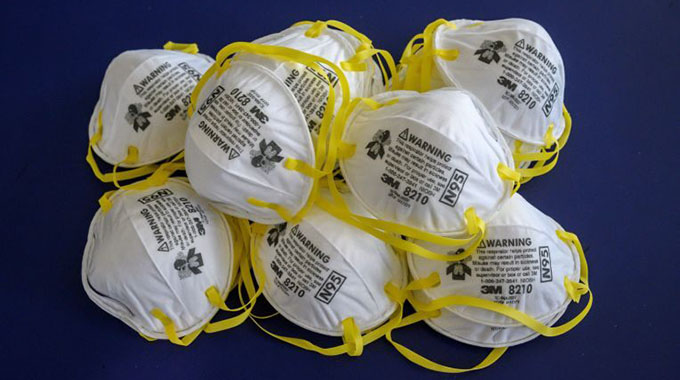Covid-19: Access to information a challenge for PWDs

Muchaneta Chimuka
Senior Reporter
- There is not enough information on Covid-19 for sign language users even in the national media
- When they want to convey sign language they usually use facial expressions hence they are forced to remove their masks such that the next person understands their communication thereby exposing themselves to the virus
- Deaf Zimbabwe Trust is currently providing Covid-19 information in sign language on social media to keep the deaf community updated on the virus
AS the nation grapples with the effects of Covid-19, there are certain categories of vulnerable groups that should be put into consideration in as far as care, support and communication services so that they can simultaneously move together with the whole community in fighting Covid-19.
Speaking to The Herald, Deaf Zimbabwe Trust communications officer, Tinotenda Chikunya, said it is important to bridge the gap separating people with hearing impairments and Covid-19 information.
She also lamented the lack of support services among persons with hearing impairments especially during pandemics like Covid-19.
“Persons with disabilities are struggling to get access to sexual and reproductive health and rights (SRHR) services during lockdown. Moving around is not easy and for people with physical disabilities travelling is difficult as the available transport and buses are not user friendly for people on wheelchairs,” she said.
Deaf Zimbabwe Trust is a voluntary organisation that promotes the right and interest of the deaf and hard of hearing.
Chakanyuka said the deaf were the most affected.
“When they want to convey sign language they usually use facial expressions hence they are forced to remove their masks such that the next person understands their communication thereby exposing themselves to the virus. There is not enough information on Covid-19 for sign language users even in the national media,” she revealed.
She said access to information is also a challenge. Information is not available in simplified formats.
“Even the news about Covid-19 vaccines, prevention and help line and facilities are rarely packaged on sign language or braille, leaving out the deaf and people with visual impairment. They can be at risk due to information gaps. In addition, they were not economically ready for the protracted lockdown given their reliance on informal trading which remained closed,” she added.
Chakanyuka said transparent masks or face shields are better for people who are deaf to ensure effective communication.
She added that Deaf Zimbabwe Trust is currently providing Covid-19 information in sign language on social media to keep the deaf community updated on the virus.
She said even access to SRHR such as contraceptives remains a challenge to people with disabilities.
“There is usually the issue of language barriers where a deaf person may go to a health centre and may need to know more on the types of contraceptives available and their benefits, but health service providers will not be able to assist as there are sign language interpreters at the centres. So deaf women end up being given contraceptives without the adequate information or sometimes being given wrong ones due to the communication barrier. Health centres must have sign language interpreters to enable ease if communication,” she suggested.
She noted that, health service providers and even the police should undergo disability management training and learn sign language during their training.










Comments